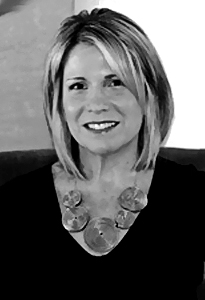New Provost wants to boost awareness of SAIC within Chicago
Though Elissa Tenny has been known on college campuses like the New School, Bennington, and now SAIC, as an administrator, an educator, and a critical thinker, she simply refers to herself as the person who knits things together. As SAIC’s incoming provost, Tenny says she is “the keeper of the academic vision,” a vision that has been challenged over the last few years of administration changes. Tenny said new President Walter Massey’s role is making connections within Chicago and fundraising for the school, whereas she describes her own position as having a more internal focus.
“It’s important for the person in this position to have lots of hands in lots of things — not meddling hands, but as a way to keep information flow going and to understand what issues are around the college,” Tenny said. Tenny intends to observe the school and listen to what the students, staff, and faculty are saying about everything from curriculum and student life to enrollment and retention rates.
“How does enrollment connect to student affairs connect to academic issues connect to facilities connect to resource issues?” asks Tenny. “How are we connected, how are we seeing the interrelationships? How are we thinking about our forward momentum so that we’re all kind of pulling in the same direction?”
I met with Tenny during her second official day on the job, and already she had spoken with resident advisors about their upcoming fall schedules, greeted graduate students and faculty about their current exhibitions, and conversed with administrators about ways to reach out to the Chicago community at large.
Having just recently left the middle of southwest Vermont for urban Chicago, Tenny says she discovered that she loves rural living and she loves city life, but isn’t crazy about what’s in between the two. And though she’s new to Chicago’s downtown area, she’s already thinking about the roles and responsibilities of the institution in the community.
“A couple of things that I’ve heard from a few people is that there are a number of people in Chicago who don’t really even know about the school — there are a number of people in Chicago who don’t know about the Art Institute — which is really kind of amazing. And so, what is the school’s responsibility to connect with the community in different ways? Whether that’s working in the schools or working with community organizations, with all the creative energies and talent in the institution, […] how do we identify faculty and students who are interested in this and then support them?”
Tenny ponders the commitments of the artist and the art school to local, national, and global issues. “I think that we are in a period as a country in which we can’t be isolated in what we do as professionals,” she said.
Another one of Tenny’s favorite analogies in regards to college curriculum is that of the intellectual meal rather than the intellectual diet. Though she doesn’t remember whether it was she or Carol Geary Schneider, the President of the Association of American Colleges and Universities, who coined the expression, it’s one that she likes to use to emphasize the potential richness and diversity of a college education.
“I think of the word diet as being all about restriction and narrowness and also I think in higher education, what’s happened at a lot of schools with the curriculum, it’s all about pick from column A and column B and column C and column D, and you have to pick from those, you don’t get to not take those classes.” Tenny encourages students to indulge in the many different courses that make up what she calls a curricular meal, something she feels that students should be passionate and excited by.
Tenny said she is excited about enriching curriculum and making connections on campus. Likely, she will draw from her previous experiences as dean of the New School and provost at Bennington, schools that cemented her belief that curriculum is not a top-down or templated structure but one that manifests itself through collaborations and explorations in an interdisciplinary focus.
Tenny said SAIC is “a gem, and it’s a resource and it’s a very important and distinguished institution in this city.” She says that both she and Walter Massey will make it a priority to get more Chicagoans to know about the school.
“Some people might say, well, if you have an international reputation, then what does it matter? How do you decide whether in fact that is an important priority? I think it should be, but the community has to think it should be.”
As the knitter of the school’s fabric, Tenny has many issues to resolve and numerous answers to provide, but what’s even more significant is that she’s constantly raising questions that challenge herself and her community. She’s eager to connect the threads within our small, private arts school, but she’s always considering the larger material of the global fabric.








